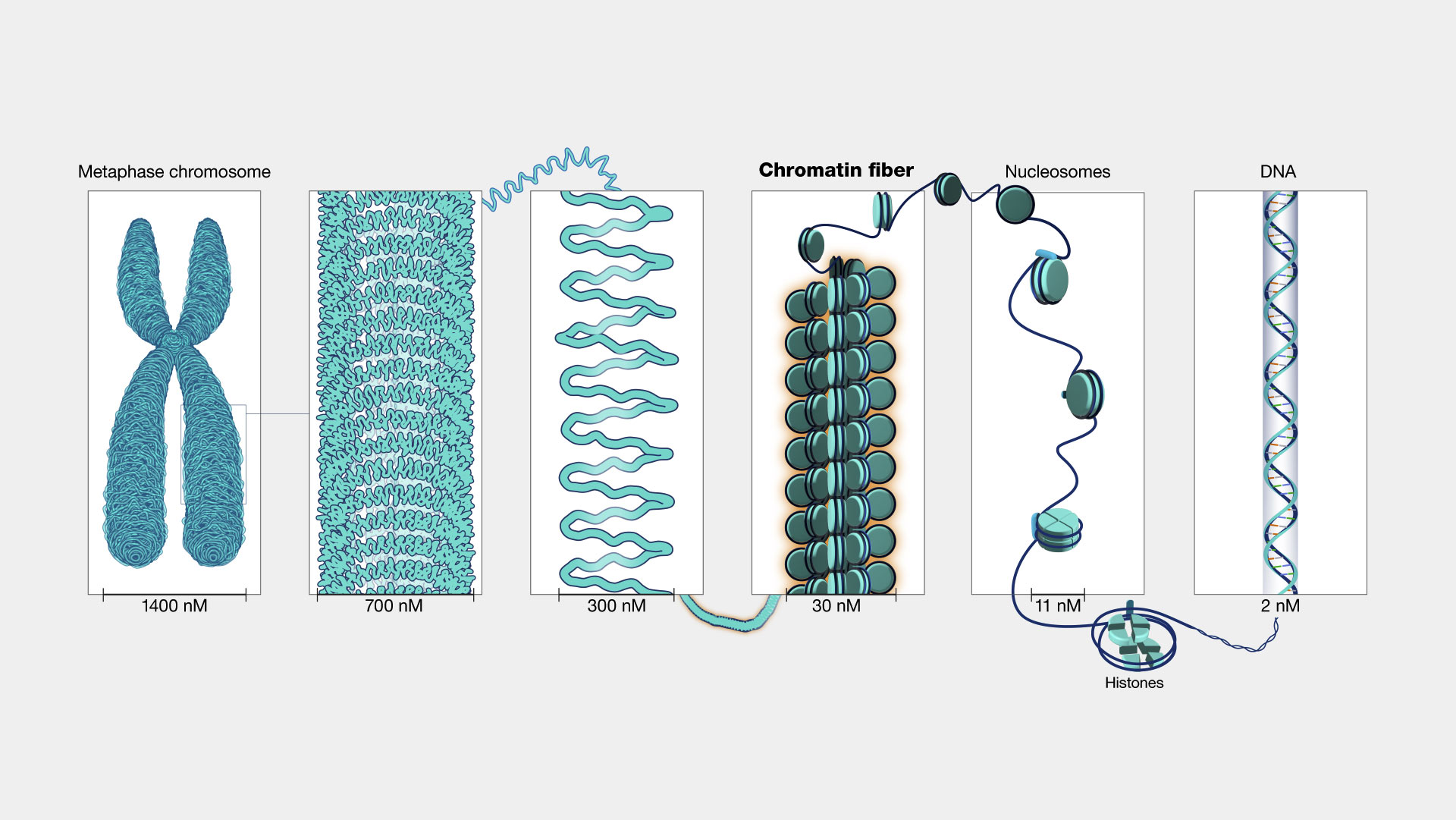Mammalian Genetics Weeks 1 & 2 - Introduction: Genetics, Genomics and Disease Inheritance and, Gene Structure and Gene Expression
1/3
There's no tags or description
Looks like no tags are added yet.
Name | Mastery | Learn | Test | Matching | Spaced | Call with Kai |
|---|
No analytics yet
Send a link to your students to track their progress
4 Terms
Genomics Vs Genetics
Mainly: Genetics looks at single genes, genomics looks at all genes.
Genetics is the study of genes and their inheritance, heredity. The structure and function of individual genes.
Genomics is the study of genes and their functions, and related techniques. Their inter-relationships, identifying the combined influence of genes and their environment on the growth and development of the organism.
Prokaryotic Vs Eukaryotic Chrs
Nucleus: Prokaryotes do not have a defined nucleus
Cell size: Prokaryote = sml 1-10 um, Eukaryote = lg 10-100 um.
Genome:
Prokaryotic chromosomes are usually one circular DNA molecule and not contained within a nucleus.
Eukaryotic chromosomes are multiple linear DNA molecules, and are located within the nucleus of the cell.
DNA structure:
Prokaryote DNA not usually complexed with histones, some histones in archaea.
Eukaryotes DNA is complexed with histone proteins.
Organelles and Cytoskeleton: only present in eukaryotes.
What is the basic structure of a chr
~2 m of DNA fit into a nucleus of 3-10 um
Basic structure = chromatid, centromere, telomere, origins of replication.
Chromatid: coiled DNA
Centromere: constricted region of the chromosome, where kinetochores from and spindle microtubules attach.
Telomeres: stabilise chromosome, like the aglet of a shoelace. At the tips of the chromosome, shorten over time until can no longer replicate?
Origins of replication: specific sites where molecules attach to begin DNA synthesis.

Describe the levels of organisation of a chromosome
Levels of organisation: DNA < Nucleosomes (histones) < Chromatin < Chromosome.
DNA: double helix strand
Nucleosome: DNA wrapped around histones (8his core) 1.65 times. When H1 is present, becomes chromatosome.
Chromatin: Fiber created when nucleosomes fold/coil into 30 nm fiber
Chromatid: Chromatin forms into 300nm loops, creating a higher level fiber structure that can coil up again, tightly, creating a 250 nm fiber.
Chromosome: composed of a chromatid and a centromere, except during replication, when composed of 2 sister chromatids, joined at the centromere. The sister chromatids are considered a single chromosome up until they separate for cell division